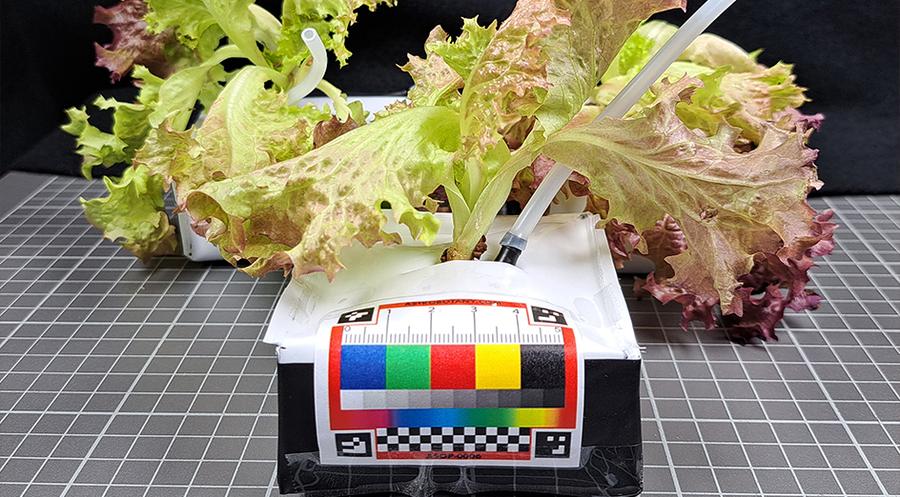UWA is one of three Australian universities to receive part of almost $3 million (£1.5M) in funding from the UK Space Agency’s International Bilateral Fund through the lead agent on the project, Vertical Future.
Professor Harvey Millar, from UWA’s School of Molecular Sciences, said the ARC Centre of Excellence in Plants for Space and the UWA International Space Centre would use its high CO2 simulated plant growth chambers, hydroponic growth systems and camera systems to monitor how algorithms used to predict plant growth would perform under high CO2 conditions expected in space stations.
“One of the unique aspects of space stations and potentially a future Lunar base is the high level of CO2 that exists in their controlled atmospheres due to human activities,” Professor Millar said.
“Typically, these levels are near 4000 parts per million, compared to only 420 parts per million on Earth.
“Plants use CO2 to grow through photosynthesis, but they also contain complex biochemistry that normally coordinates growth with the low CO2, high O2 levels found on Earth.”
The facility is being designed for the Axiom Station, a series of modules for human habitation that will be launched into orbit around 2025 and will replace the International Space Station. It will adapt learnings from past experiments on the International Space Station to ensure its feasibility.
“Growing plants as food in space stations or a future Lunar base requires robust processes to ensure crops are available on-time and in the expected quantity to meet demand,” Professor Millar said.
“The collaboration between plant scientists and space technology providers from the UK, Australia, and the US aims to create new commercial options for automating plant growth at scale in space and on Earth.”
The lead partner in the project, Vertical Future, is a vertical farming technology and data company, based in London. The expert plant science and space technology partners come from UWA and the universities of Cambridge, Adelaide and Southern Queensland and work with industry partners Axiom Space (US), and Saber Astronautics (USA and Australia).
original article.
